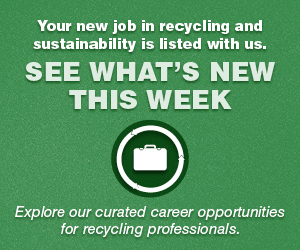
Seattle Public Utilities (SPU) is a member of the Northwest Product Stewardship Council, a coalition of local governments in Washington and Oregon that have worked together for years on product stewardship and producer responsibility policies. | Christoper Boswell/Shutterstock
As Washington state lawmakers try once more to usher an extended producer responsibility for paper and packaging bill through the legislature, Seattle Public Utilities will be there to help.
McKenna Morrigan, strategic advisor for waste prevention and product stewardship for Seattle Public Utilities, told Resource Recycling that EPR has long been a core component of the department’s work around zero waste and a circular economy.
Seattle Public Utilities (SPU) is a member of the Northwest Product Stewardship Council, a coalition of local governments in Washington and Oregon that have worked together for years on product stewardship and producer responsibility policies, Morrigan said.
“We at Seattle Public Utilities and the members of the Northwest Product Stewardship Council are aware that for many of the solid waste issues that we face in our communities, as local governments, we alone cannot solve the problems that we face,” she said. “We need to bring the companies that make products to the table to join us.”
Although that holds true for many different product categories and types of materials, Morrigan said it’s particularly acute for packaging and paper.
“We have seen this as an area where there’s long been a need for a producer responsibility approach,” she said, “because despite decades of investment by local governments and the recycling industry, here in Washington we still see more than half of all recyclable paper and packaging ending up in landfills.”
A press release noted the growing amount and complexity of packaging also result in customer confusion, higher service costs and unnecessary waste. EPR would give residents increased transparency, producer accountability and a standardized list of recyclable materials, SPU said, and reassure the community “that what you are putting in your bin actually gets recycled.”
“Even though Seattle is proud that we have built a very strong and successful recycling program for our residents over the years, we can’t keep up with the rapid changes in packaging on our own and we know that we need producers at the table to solve our challenges and to build a more circular system for packaging in the future,” Morrigan said.
She added that EPR would both help expand curbside access to more households and provide clarity for a “fragmented” system, where what’s accepted varies between cities.
During a Jan. 17 Senate hearing on the bill, several other towns and municipalities spoke in support of the WRAP Act, citing similar reasons.
Morrigan said Washington is fortunate to have been talking about EPR for years, because there are already several studies that have been done on best practices for the state.
“There has been a lot of research efforts and data and stakeholder conversations about what an appropriate approach looks like for Washington that builds on best practices and lessons learned from producer responsibility policy approaches elsewhere, but is also tailored to meet the unique needs and context of Washington state,” she said.
In 2019 the legislature commissioned an analysis and report on how to address plastic packaging waste. Completed in 2020, it offered three core primary recommendations: EPR for all packaging, a deposit return system for beverage containers and setting recycled content requirements for plastic packaging.
The WRAP Act contains all of those and “represents the next step in policy action,” Morrigan said.
Earlier this month, the legislature also received a study on current recycling rates for consumer packaging and paper, with recommendations on how to address problematic and unnecessary plastics.
“This year isn’t the start of the convention,” she said. “This is a policy discussion that has been unfolding in Washington over a number of years.”
“I think from Seattle Public Utilities perspective,” she continued, “[the WRAP Act] represents the culmination of that policy discussion and really represents a very thoughtful and well-refined approach that is going to meet the needs of Washington cities and other stakeholders in the industry and make a meaningful difference.”
More stories about EPR/stewardship
- Colorado approval signals path forward for PRO choice
- Casella marks gains, hurdles in 2025 progress report
- CalRecycle opens comment again for SB 54 rules



